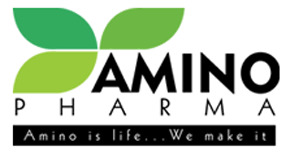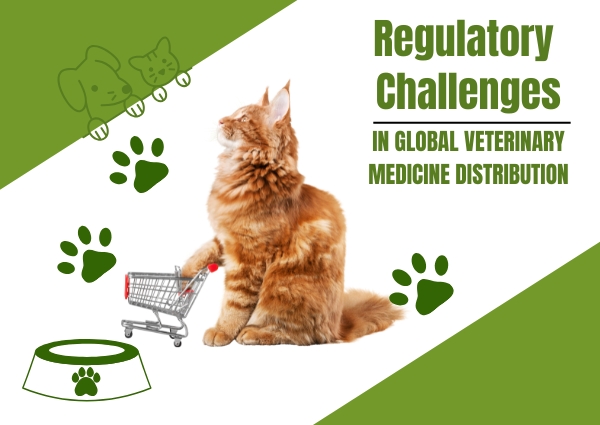The veterinary medicine industry is one of the fastest-growing sectors worldwide, driven by the rising demand for animal healthcare, food safety, and pet ownership. However, distributing these medicines across global markets is far from simple. Stringent regulatory frameworks, compliance issues, and varying international standards often create challenges for companies aiming to deliver safe and effective animal healthcare solutions.
For businesses, veterinarians, and farmers, understanding these regulatory challenges in veterinary medicine distribution is essential. It not only ensures compliance but also guarantees that animals receive high-quality, reliable treatments.
Why Regulations Matter in Veterinary Medicine
Animal health products directly impact public health, food safety, and trade. Medicines used for livestock affect the quality of milk, meat, and eggs consumed by people worldwide. Similarly, pet medications must be safe, effective, and properly regulated to prevent harm.
This makes regulatory oversight critical. Authorities must ensure that every veterinary product meets high standards of:
- Safety for both animals and humans.
- Efficacy in treating the intended condition.
- Quality in manufacturing and storage.
- Traceability to track sources and prevent counterfeit products.
Key Regulatory Challenges in Global Distribution
- Diverse International Standards
Every country has its own set of rules governing veterinary medicine approval, import, labeling, and distribution. A product approved in the European Union may not meet the requirements of the U.S. Food and Drug Administration (FDA) or India’s Central Drugs Standard Control Organization (CDSCO).
This creates hurdles for companies trying to expand internationally, often requiring multiple registrations and lengthy approval processes.
- Counterfeit and Substandard Medicines
The global veterinary market faces threats from counterfeit and poor-quality medicines, especially in developing countries. Ensuring authenticity during distribution requires strong regulatory enforcement and trusted supply chains.
- Cold Chain and Storage Compliance
Certain vaccines and medicines require strict cold-chain management. Regulatory bodies mandate that distributors maintain proper temperature logs. Failure to comply may result in penalties or product recalls.
- Documentation and Traceability
Distributors must maintain detailed records of production, packaging, shipment, and sales. Regulatory bodies use this data to trace medicines in case of adverse effects or quality complaints. Maintaining this documentation across borders can be complex and resource-intensive.
- Import and Export Barriers
Tariffs, import restrictions, and licensing requirements differ from country to country. Distributors often face delays and added costs while navigating customs clearance and documentation.
- Antimicrobial Resistance (AMR) Regulations
Global authorities are tightening regulations on the use of antibiotics in animals to combat antimicrobial resistance. This means manufacturers and distributors must adapt formulations, labeling, and prescription practices to comply with evolving rules.
The Indian Perspective
India has emerged as a major hub for veterinary medicine manufacturing. With cost-effective production, skilled manpower, and a growing domestic market, the country supplies medicines to more than 100 nations. However, compliance with global regulatory standards remains a challenge.
The Best Veterinary Medicine Manufacturers in India are those who not only meet domestic regulatory guidelines but also adhere to international certifications like WHO-GMP, ISO, and OIE standards. These companies invest in robust quality control systems, transparent supply chains, and modern R&D facilities to meet global requirements.
How Technology is Helping Tackle Regulatory Challenges
Digital transformation is easing compliance in veterinary medicine distribution. Some advancements include:
- Blockchain for Traceability: Ensures transparent supply chains and reduces counterfeit risks.
- AI-driven Quality Control: Identifies defects and ensures consistency in manufacturing.
- IoT-enabled Cold Chains: Monitors temperature and storage conditions in real-time.
- Cloud-Based Documentation: Simplifies global regulatory paperwork and audits.
By adopting these technologies, manufacturers and distributors can better navigate the complex web of international regulations.
The Way Forward for Global Veterinary Distribution
To overcome regulatory challenges, stakeholders must work together:
- Manufacturers must invest in compliance, testing, and certifications.
- Distributors should build transparent, technology-driven supply chains.
- Governments need to harmonize international standards for smoother trade.
- Veterinarians and Farmers should rely only on trusted suppliers and certified medicines.
Ultimately, overcoming regulatory hurdles ensures safe, effective, and timely delivery of veterinary medicines to animals worldwide.
Global veterinary medicine distribution is full of opportunities, but navigating regulatory challenges is crucial for success. From diverse international standards to the fight against counterfeit medicines, companies must stay proactive, transparent, and technologically advanced.
For India, the opportunity is even greater. The Best Veterinary Medicine Manufacturers in India are setting benchmarks in quality, compliance, and global supply. By combining strict adherence to regulations with innovation, these companies are shaping the future of veterinary healthcare.
At Amino Pharma, we are committed to upholding international standards while providing high-quality veterinary medicines. With our dedication to compliance and innovation, we aim to support veterinarians, farmers, and distributors worldwide in ensuring healthier animals and safer food supplies.

